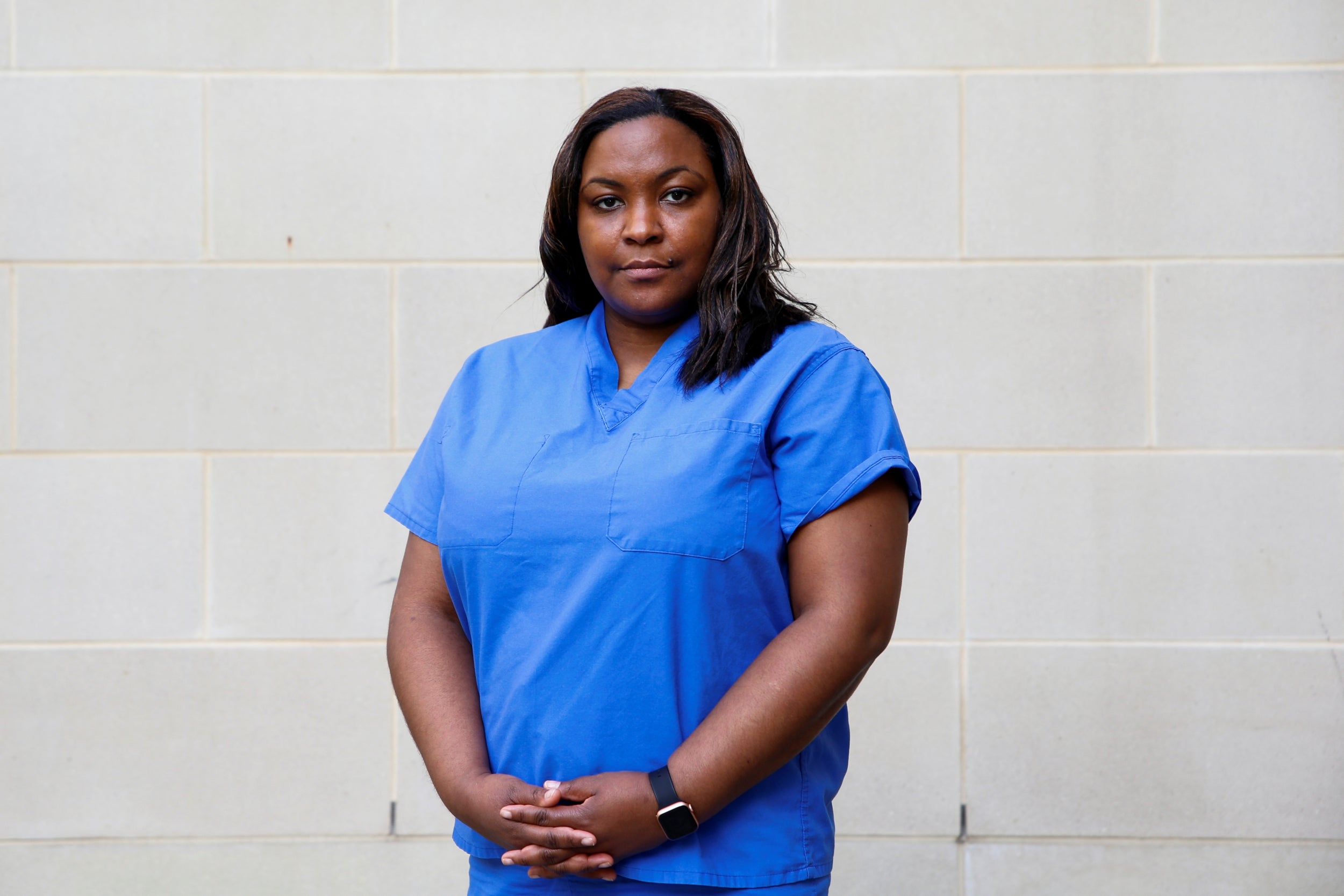A day fighting coronavirus: US hospital staff share the hardest moments on shift
Communicating with families has weighed heavily on the medical workers during the pandemic
The shifts are long and the scenes are heartbreaking inside a Maryland hospital where nurses and doctors have been treating coronavirus patients for weeks, unable to let family inside to visit loved ones on their death beds.
After finishing what for many is more than a 12-hour shift, some nurses and doctors at one hospital have talked about the hardest moments of their days. The hospital asks that it not be named.
The medical workers agree that one of the toughest parts of the job – more than the exhausting schedule or adjusting to work in a new unit – is witnessing the toll on patients and families.
Because of the hospital’s no-visitor policy, which was implemented to prevent further spread of the virus, the medical staff must care for the patients’ physical needs and offer as much emotional support as they can muster in the absence of the patients’ families.
“The hardest moment during the shift was just seeing Covid patients die helpless and without their family members beside them,” says Ernest Capadngan, a nurse in the hospital’s biocontainment unit.

Communicating with the families has weighed heavily on the hospital staff. Staff cannot bend the no-visit rules, even when a family calls in desperation. There are very few opportunities to rest during a shift, although colleagues look out for one another and try to cover for each other when someone needs a break.
Cheryll Mack, a registered nurse in the emergency room, says she tries to get outside for 15 minutes during the day to breathe. “It has given me relief, just fresh air,” Mack says.
Each shift concludes with a similar decontamination drill. Nurses and doctors must remove their personal protective equipment and shower immediately before coming in contact with their family at home. “I take a very long, very hot shower. And then I usually sit on the couch and read a book or watch some mindless reality show in order to destress,” says Martine Bell, a nurse practitioner.
Laura Bontempo, an emergency medicine physician, says she removes her work clothing and gear in a decontamination tent she has set up outside her home, and then wraps herself in a towel and runs inside to shower. Then she puts the scrubs in the washing machine by themselves to not contaminate any other items.
Meghan Sheehan, 27, a nurse practitioner, says she drives home each night without turning on the radio and uses the quiet time to reflect on her shift and her patients. “I go home, I shower immediately and try to have dinner with family, and try to not talk about it,” she says.
“The time at night is definitely the hardest because you’re constantly thinking about what the next day will bring.”
Writing: Gabriella Borter, Reuters
Join our commenting forum
Join thought-provoking conversations, follow other Independent readers and see their replies
Comments
Bookmark popover
Removed from bookmarks